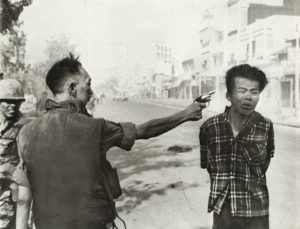I am tempted to start a short-timer’s calendar in anticipation of what I am absolutely certain is going to become an epic television event.
The Public Broadcasting Service is going to broadcast beginning Sept. 17 a 10-part documentary series, covering 18 hours, on the Vietnam War. Panhandle PBS — based at Amarillo College — will broadcast it in real time as it airs.
I am so very hopeful that it deals with a burning question that has nagged me for decades: Why did we fight this war? I spent a bit of time in Vietnam a long time ago as a member of the U.S. Army. I became confused as to the mission and whether it was all worth the fight. So, it is with that lingering doubt about this major American chapter in our national history that I await this program.
Ken Burns and Lynn Novick are the co-producers of this TV broadcast. I’m sure you know about Burns, the iconic historian and documentarian who has compiled a vast body of work over many years on PBS. “The Dust Bowl,” for example, told the story of how the world’s greatest manmade ecological disaster affected the Texas and Oklahoma panhandles, decimated families and steeled those who remained with an unbelievable resolve to recover.
Burns and Novick have collaborated on this Vietnam War package over the span of 10 years.
I read an interview with them in a magazine called “Vietnam.” Novick answered about what made her decide to make this film. with a fascinating notion. “Some people have said, ‘Why are you going to open old wounds? Can’t we let sleeping dogs lie?'”
I would argue that the dogs of the Vietnam War aren’t sleeping. They haven’t slept a wink since the shooting stopped in late April 1975. The nation has been agonizing ever since about the war, its consequence, the wounds it inflicted on us here at home.
“It’s too painful. And it’s still here,” Novick told “Vietnam.”
A generation of Americans who once were young but who now are much older has lived through considerable pain. Some of us came back from that war and were met with open hostility. I did not experience such shameful conduct, but I certainly knew of it occurring all around me. Those attitudes have changed dramatically in the decades since and I accept with gratitude expressions of thanks today for my service during that long-ago conflict.
I welcome this broadcast with great anticipation about what it will reveal about that terrible time in our national history.
I applaud PBS for its continuing relationship with Ken Burns, who has teamed up with another dedicated documentary filmmaker to tell the story of what has been described as the world’s most important historical event of the second half of the 20th century.
Millions of us played a part in shaping that story. We await anxiously this monumental television event.
